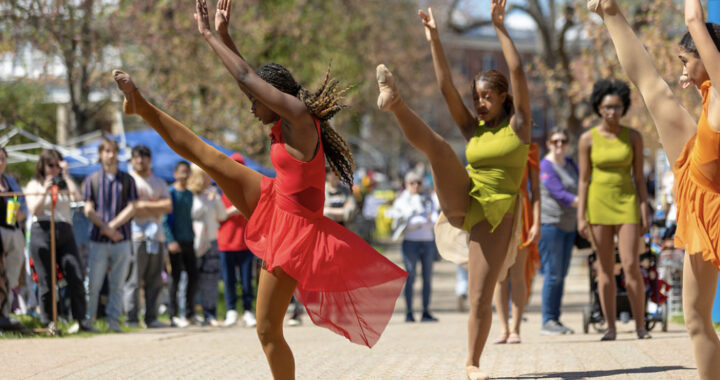Orientation should introduce LGBTQ+ vocabulary
3 min read
The James Farmer Multicultural Center / Cayley McGuire
By ABIGAIL WEBER
Staff Writer
UMW Diversity Orientation should include basic terminology for members of the LGBTQ+ community.
On Aug. 22, incoming students gathered in Dodd Auditorium for “Dialogues on Diversity.” The interactive presentation examined diversity from a philosophical perspective. The presenter encouraged students to expand their horizons and urged them to acknowledge the complexity of diversity, not just race or LGBTQ+ identity.
While this more philosophical, less prescriptive preparation for understanding varied perspectives and life experiences is beneficial, UMW should also include basic terminology that students may not have encountered that is essential for having productive dialogue. As “Dialogues on Diversity” pointed out, diversity also includes a wide variety of knowledge bases.
What may seem elementary to someone from a very LGBTQ+ friendly school may be wholly unfamiliar to someone from a different background. For example, in FSEM 100Q’s book discussion, three people admitted to not knowing what the term “cis” meant, a number which may have been lower than the reality due to embarrassment.
This isn’t surprising, as for many students coming from high schools, the amount they learn varies widely by school and district. According to GLSEN’s 2017 Natural Climate Survey, 64.8 percent of United States LGBTQ+ students surveyed were not “exposed to representations of LGBTQ people, history, or events in lessons at school,” a number which can be extended to include straight and/or cisgender students in the same schools.
The majority of students at UMW come from Virginia, which has neither so-called “no promo homo” laws which prohibit teaching about LGBTQ+ identities in the classroom in a positive manner nor a required curriculum on LGBTQ+ education. This means that treatment of LGBTQ+ identities in the school system can vary widely by school and district even within a single state.
The Centers for Disease Control and Prevention (CDC) reports that only 27.9 percent of Virginia schools include LGBTQ+ information in health classes. With the present lack of information in school curriculums, spreading awareness of sexual and gender minorities is left up to Gay-Straight Alliances, or Gender-Sexuality Alliances (GSAs). Unfortunately, the CDC reports that only 31.7 percent of Virginia high schools have a GSA. Without the introduction of LGBTQ+ terminology, student knowledge and compassion is limited to what they learn on their own, whether it be through personal interest, experience or the media.
Even in GSA clubs, members may assume that anyone who interacts with the club already knows the relevant vocabulary.
“I never heard anyone ever actually formally say what the words meant,” said freshman Emma Bradley about her high school. “If you were at GSA, you knew…There was never any time when everyone just sat down [and said]…‘this is what this term means.’”
While UMW supports its own GSA-like initiatives, a prominent example being PRISM, the issue remains that the lack of a fundamental understanding of vocabulary could discourage cisgender heterosexual students from connecting with LGBTQ+ peers. Additionally, in an era where LGBTQ+ platforms and issues are gaining traction in the media and politics, a basic understanding of how to properly describe them is crucial for everyone, regardless of their relationship or lack thereof with the LGBTQ+ community.
As a university that prides itself on discussion and the free, educated exchange of a wide range of ideas and information, it is critically important that we equip our students with the necessary vocabulary to do so. The diversity of our student body includes a wide variety of backgrounds and knowledge bases. In order to facilitate respectful, intelligent discussion, UMW should educate students with a basic, shared vocabulary in the opening week of programming for incoming students.











